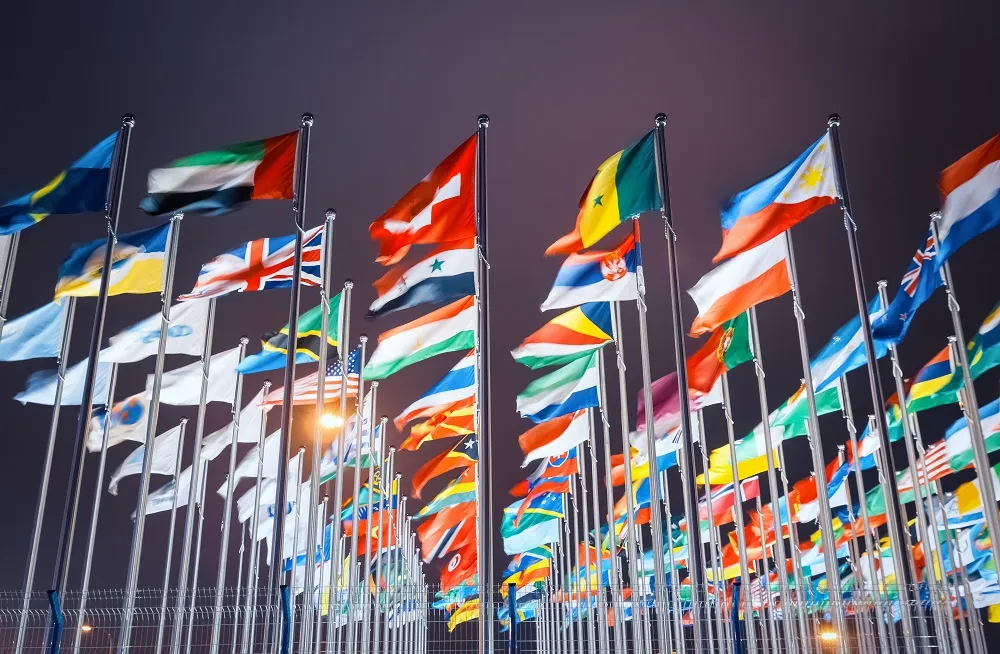The Future of Multilateralism in a Divided World
Multilateralism, the practice of multiple countries working together on issues of common interest, faces significant challenges in today’s increasingly divided world. Rising nationalism, geopolitical tensions, and complex global issues put the future of multilateral cooperation at a crossroads. This article explores the evolving landscape of multilateralism, assessing its current state, challenges, and potential pathways forward.
The Current State of Multilateralism
1. Historical Context
Origins and Evolution:
Multilateralism has historically been a cornerstone of international relations, aimed at promoting peace, security, and cooperation. Institutions like the United Nations, the World Trade Organization, and various regional organizations exemplify the collaborative approach to addressing global issues.
Achievements:
Multilateral efforts have led to significant achievements, including the establishment of international norms, the resolution of conflicts, and the promotion of human rights. Agreements such as the Paris Agreement on climate change highlight the successes of collective action.
2. Current Trends
Institutional Fragmentation:
In recent years, there has been an increase in institutional fragmentation, with new organizations and forums emerging outside traditional multilateral frameworks. This trend reflects both the diversification of global actors and the challenges facing established institutions.
Shifts in Power Dynamics:
The rise of emerging powers and the shifting balance of global power impact multilateralism. Emerging economies, like China and India, are increasingly influential, shaping the agendas and priorities of international institutions.

Decline in Global Consensus:
There is a noticeable decline in global consensus on key issues, as nations prioritize national interests over collective goals. This divergence affects the effectiveness and cohesion of multilateral efforts.
Challenges Facing Multilateralism
1. Nationalism and Protectionism
Rise of Nationalism:
Nationalism and populism have gained traction in many countries, leading to a focus on domestic concerns at the expense of international cooperation. This shift challenges the principles of multilateralism and complicates efforts to address global problems.
Economic Protectionism:
Economic protectionism, including trade barriers and unilateral policies, undermines multilateral trade agreements and cooperation. Countries prioritizing their own economic interests can disrupt global trade and hinder collaborative solutions.
2. Geopolitical Tensions
Great Power Rivalries:
Rivalries among great powers, such as the United States and China, strain multilateral institutions and cooperation. Competing interests and geopolitical strategies can lead to gridlock and conflict within multilateral forums.
Regional Conflicts:
Ongoing regional conflicts and tensions impact multilateral efforts, as countries involved in disputes may be less inclined to participate in collaborative initiatives. These conflicts can undermine the stability and effectiveness of international organizations.
3. Institutional Inefficiencies
Bureaucratic Challenges:
Multilateral institutions often face bureaucratic challenges, including slow decision-making processes and limited resources. These inefficiencies can hinder their ability to respond effectively to global issues.
Representation and Legitimacy:
Concerns about representation and legitimacy in multilateral institutions arise, particularly regarding the inclusiveness of decision-making processes. Ensuring equitable representation and addressing criticisms of bias are ongoing challenges.
Pathways for the Future of Multilateralism
1. Reforming Institutions
Institutional Innovation:
Reforming existing institutions and creating new ones can address the challenges facing multilateralism. Innovations in governance, decision-making, and representation can enhance the effectiveness and relevance of international organizations.
Strengthening Global Norms:
Reinforcing global norms and agreements, such as those related to climate change, human rights, and trade, can promote collective action and cooperation. Strengthening these frameworks helps address shared challenges and build global trust.
Promoting Inclusivity:
Enhancing inclusivity in multilateral processes ensures that diverse perspectives are considered. Engaging emerging powers, regional actors, and non-state stakeholders can contribute to more effective and representative decision-making.
2. Encouraging Collaborative Approaches
Regional Cooperation:
Fostering regional cooperation can complement and support global multilateral efforts. Regional organizations and agreements can address specific issues and serve as building blocks for broader international cooperation.
Public-Private Partnerships:
Leveraging public-private partnerships can enhance the effectiveness of multilateral initiatives. Collaboration between governments, businesses, and civil society can drive innovation and resource mobilization for global challenges.
Building Trust and Dialogue:
Promoting dialogue and building trust among nations are essential for successful multilateralism. Engaging in diplomatic efforts, conflict resolution, and confidence-building measures can improve cooperation and reduce tensions.
3. Adapting to New Challenges
Addressing Emerging Issues:
Multilateralism must adapt to new and evolving global challenges, such as cyber threats, pandemics, and technological disruptions. Developing flexible and adaptive approaches ensures that international cooperation remains relevant and effective.
Leveraging Technology:
Utilizing technology to enhance communication, collaboration, and data-sharing can improve the functioning of multilateral institutions. Digital tools and platforms can facilitate greater engagement and efficiency in addressing global issues.
Fostering Global Citizenship:
Promoting a sense of global citizenship and shared responsibility can strengthen support for multilateralism. Encouraging public awareness and involvement in global issues fosters a collective commitment to international cooperation.
Conclusion
The future of multilateralism in a divided world faces significant challenges but also presents opportunities for innovation and collaboration. By addressing issues related to nationalism, geopolitical tensions, and institutional inefficiencies, and by embracing reform, inclusivity, and adaptability, the international community can navigate the complexities of global governance. Strengthening multilateralism is crucial for addressing shared challenges and building a more cooperative and resilient global order.

